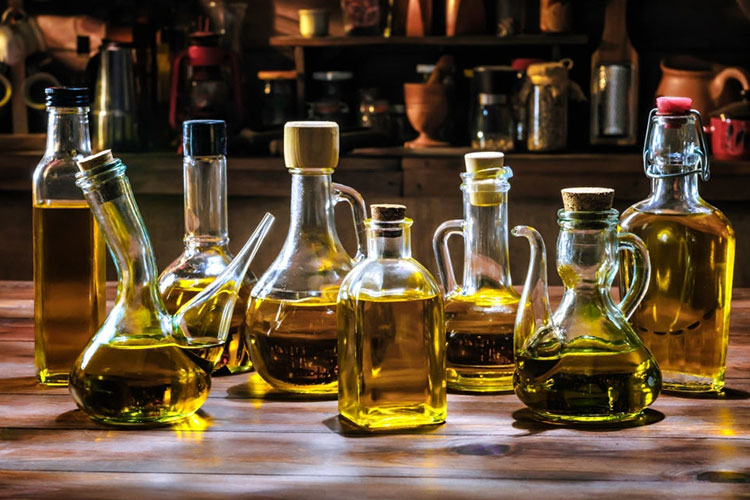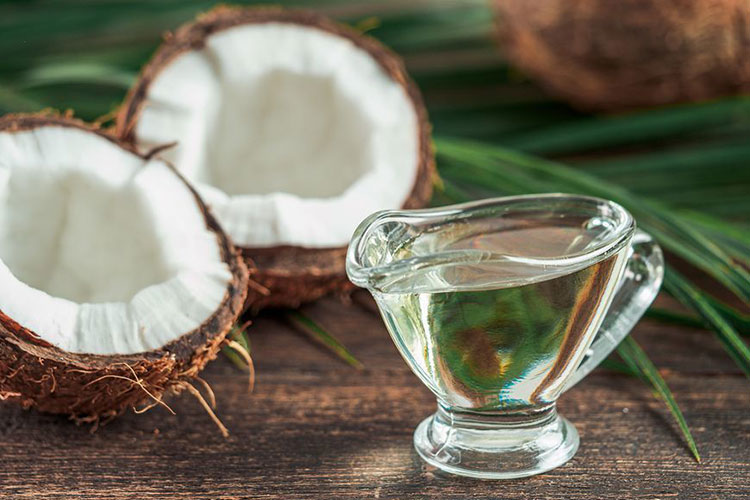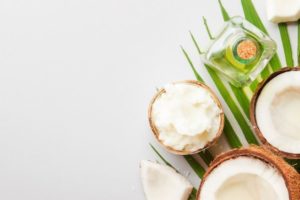CBD is an extremely powerful substance, but it’s not powerful enough to work on its own. In fact, CBD products need more than just CBD to work. They also need something called a carrier oil, which helps “carry” the therapeutic components of CBD to different parts of your body.
If you’re trying to choose which CBD products to use, or if you want to try making your own CBD products, it’s worth looking into the properties of different CBD carrier oils. They all have different benefits, and you may have medical needs that will lead you to choose one carrier oil over another.
The Benefits of CBD Carrier Oil
CBD has a wide range of therapeutic uses. Different types of CBD carrier oil come with additional potential benefits – and side effects.
Research is still underway on the health benefits that can be achieved with CBD carrier oil. However, evidence suggests that some carrier oils – mainly MCT oil – contribute to weight loss through appetite reduction, metabolism increase, and facilitating a higher and faster calorie burn. Those who have autism, cancer, type 2 diabetes, epilepsy, and Alzheimer’s disease may also benefit from certain types of CBD carrier oil.
Here are some of the qualities you should look for while searching for CBD carrier oil.
Absorbing Ability
Whether you’re using CBD orally or on your skin, you want to make sure your body can absorb the active ingredient to get the best results. Different carrier oils allow you to absorb different amounts of CBD.
A good carrier oil allows for excellent absorption of CBD into your bloodstream or skin. This is known as “bioavailability,” measuring just how fat-soluble a CBD carrier oil is. The more CBD your body can absorb, the more effective it will be.
It’s also essential since CBD isn’t water-soluble, like sugar, but needs a fat-soluble carrier to absorb it into the body. The digestive tract redirects the fat-soluble substance to the fatty tissues and throughout the lymphatic system. This process properly distributes CBD throughout the body.
Easier Dosing
While CBD is a natural therapeutic component, you want to be careful with dosing, as it’s considered very potent. A little bit goes a long way with CBD, and carrier oil can help you maintain a consistent dosage. When CBD is mixed with a carrier oil, it’s consistently measured, so you know you’re getting the right amount every time.
Even More Health Benefits
Did you know that carrier oils also have health benefits? On top of the many positive effects of CBD, its carrier oils have their own benefits, such as boosting heart health.
When you use hemp oil as a carrier oil for CBD, you may benefit from the “entourage effect.” This means that other components of the hemp plant work together with CBD to double down on their benefits.
Best Carrier Oil for CBD: Hemp Oil vs. Coconut Oil vs. MCT Oil
Upon first glance, it can be challenging to differentiate between different carrier oils. There are so many to choose from, including hemp oil, coconut oil, avocado oil, MCT oil, and olive oil. How do you know which one is best? Does it even matter?
First of all, if you have any nut allergies, it’s vital to check the source of the CBD carrier oil since some are derived from nuts, like coconut. This is especially important if you’re using ingesting the CBD product, but topical CBD products may also irritate your skin if you’re allergic to the carrier oil used in the product.
You may also want to consider taste – whatever your particular palate wants, there are likely options for you. There’s no need to use a product that you hate the taste of.
There’s no way to say for sure which CBD carrier oil is the best for you – you must decide that for yourself, based on a few things: do you have allergies? What conditions do you have, if any? What is your preference for flavor? How do you want to use the product, i.e., topically or orally?
Beyond that, read on to learn more about the properties of different CBD carrier oils, so you can choose which one is best for you.
Hemp Oil
Derived from the same hemp plant as CBD, hemp oil utilizes both the flower and seeds. Hemp oil contains cannabinoids and terpenes in lower quantities but contains phytochemicals unique to the seeds alone. This means that hemp oil as a CBD carrier oil gives a unique entourage effect.
Hemp oil, although still undergoing research, has been used to treat a variety of conditions, like rheumatoid arthritis, blood pressure, and acne. Hemp oil contains an excellent ratio of omega-6 and omega-3 fatty acids, which could lower inflammation. It is also rich in antioxidants and minerals like magnesium, calcium, iron, and zinc.
Note that hemp oil has a strong “earthy” taste, which can sometimes turn people off from ever trying it again. Despite typically not holding as much CBD as MCT, it can significantly vary in price.
Avocado Oil
With avocado’s quick rise in popularity, avocado oil is now one of the most commonly used oils for everything from cooking to – you guessed it – CBD. Avocado oil’s nutty flavor makes it great for CBD products that are ingested, and it’s also exceptionally good for topical use. Part of the reason it’s so popular for topical usage is that it typically doesn’t clog your pores like some other products and, since it takes longer to dry, it may last longer.
This carrier oil is rich in antioxidants and vitamins A, B, D, and E, which work in tandem to lower your risk of heart attack by lowering bad cholesterol and raising good cholesterol. Users of this carrier oil may see some protective benefit against diabetes, as the oil fights the risk of diabetes by improving glucose tolerance and reducing insulin resistance.
You may find that avocado oil is much thicker than some other varieties out there, on top of being more expensive. Allergies with avocado oil are possible, so if you experience itching or any other negative reactions speak with your doctor.
MCT Oil
MCT, or medium-chain triglycerides, are a fatty acid your body absorbs quickly since they are easy to break down with digestion. This quick absorption is aided by the fact that it’s 90% saturated fat and is one of the main reasons many CBD users utilize MCT. In fact, it’s the most widely used variety of CBD carrier oil.
Like coconut oil, MCT oil is typically processed from coconut oil and labeled as “fractionated coconut oil.” Despite being derived from coconut oil, CBD MCT oil is usually flavorless and takes quite a while to go bad. It’s also relatively cheap in comparison to some of the other varieties.
Some people do experience some negative reactions, however – nausea, gas, diarrhea, and vomiting are some of the uncommonly reported side effects. It’s especially risky for those who suffer from diabetes as an excessive build-up of ketones in the body can be dangerous. MCT may have a significant impact on the onset of liver disease and high cholesterol, so always consult with a medical professional before ingesting it.
Olive Oil
Another widely used CBD carrier fluid is olive oil, something you’ve likely used in the kitchen. Out of all CBD carrier oils, we know the most about olive oil – its health benefits, its versatility, and its taste.
First and foremost, it’s rich in iron, antioxidants, and vitamins K and E. This highly researched oil absorbs into the skin much faster than the other leading carrier oil – MCT, also known as fractionated coconut oil.
While it typically doesn’t hold as much CBD as MCT, research has shown time and time again that olive oil comes with an array of benefits: reducing inflammation, increasing good cholesterol while lowering bad cholesterol, boosting immunity, reducing risk for heart attack by aiding in blood clotting, supporting healthy nerve function, balancing out stomach bacteria, preventing cognitive decline, and even preventing bone thinning.
Final Thoughts
Since CBD and carrier oils work almost symbiotically with one another, you have quite a few possibilities to get the most benefits. Now that you know that CBD carrier oils come from various sources and vary in their effectiveness, you can choose a carrier oil that’s best for your particular concern – whether that’s stress, arthritis, diabetes, high blood pressure, heart problems, etc. If you’re unsure of which carrier oil to choose, you might want to try a few and see what you think of their taste, absorption, and other properties.
All CBD carrier oils are great at allowing your body to absorb CBD, so it’s really up to you to pick your favorite “flavor.” Hemp seed oil and MCT oil are the two most popular options for their effectiveness, but avocado oil is booming in its popularity. If you’re not satisfied with one, try out another and see which one gives you the best results.
FAQs About CBD Carrier Oil
Question: Are essential oils the same thing as CBD carrier oils?
Answer: No. You may find CBD oils (particularly topical products) that contain essential oils, but they are not the same thing.
Essential oils are used for aromatherapy due to their high concentration of ingredients. This means they can be harmful to ingest or even to use on the skin without diluting. Therefore, carrier oils are sometimes used to dilute essential oils for topical use.
Question: Why is carrier oil necessary for CBD?
Answer: CBD in its raw form is a white powder that is difficult to measure and consume. It also doesn’t serve well as a topical treatment in this form. Mixed with a carrier oil, your body will be able to process the more easily usable CBD that remains fresh. The carrier oil slows down the oxidation process, allowing the CBD to retain its potency.
Question: Can you use carrier oils on their own?
Answer: Yes – in fact, many carrier oils have excellent properties on their own, with active ingredients that are often found in face oils, masks, cleansers, and creams. The fatty acids and vitamins inside carrier oils are why many people include them in their skincare routine. Many carrier oils, such as avocado oil and olive oil, also have health benefits when you consume them in food.








